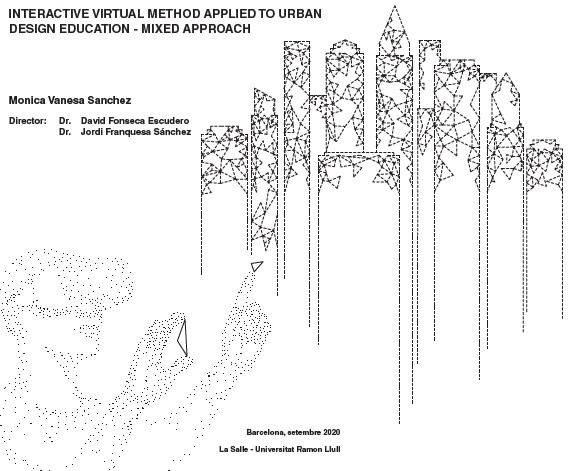The memory of this thesis deals with the use of digital transformation in the teaching and processes of urban design, through innovative concepts and practical methodologies. The objective is to promote the use of digital technologies, in particular, to evaluate the inclusion of virtual reality in various formal and informal teaching environments of collaborative urban design, in order to improve it, speed up, and increase its positive social impact and improve university teaching by helping students consolidate their skills more effectively.
With the characteristics of the VR system, we can test our hypothesis based on demonstrating: (1) The use of virtual-interactive systems for the understanding of three- dimensional space improve in students and professionals the perception of the comprehension of the space, generating a greater understanding of the location conditions, dimensions and relationships of urban spaces, and defend the arguments of urban projects and interactively defined urban proposals rehearsing various strategies of action. (2) The implementation of virtual gamified strategies in the field of urban design will generate improvement and motivation in citizen participation and students as it is a more dynamic, real and agile collaborative environment thanks to the immersive visual technologies as they critically evaluate the result of the urban design and make decisions.
To validate our hypothesis, we use a quantitative and qualitative method applied in different scenarios and to a different profile of users, students, professionals and end users. The results will show that it is possible to empower digital transformation, to improve public motivation, implication, and satisfaction in urban decision-making processes as well as complementing the improvement of the perception of the comprehension of the space needed for the profession in Architecture students.
